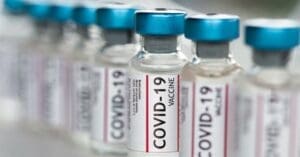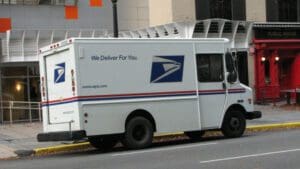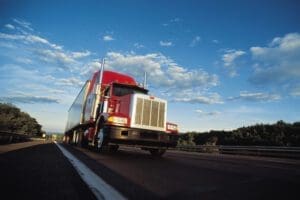 Earlier this week, ARC Advisory Group held its 2021 Supply Chain Forum. Titled Accelerating Digital Transformation in Supply Chain & Logistics, the virtual event brought together thought leaders and practitioners to discuss digital transformation and the effects of the Covid-19 pandemic on global supply chains. Of course, companies mean different things when they use the term “supply chain digital transformation” or “digital supply chain.” For some companies, it means replacing manual, paper, and pencil processes with digital data and process support; for others it means investing in the latest digital technologies such as autonomous mobile robots or artificial intelligence. At this year’s event, speakers from TireHub, AGCO, Radwell, GE Appliances, Ipsen, Ahold Delhaize, A101, and Atrium Health were joined by technology leaders including Blue Yonder, Oracle, ToolsGroup, Kinaxis, Dematic, Swisslog, and Solvoyo to share real-life success stories. It’s not too late to check out the sessions. You can register here. And now on to this week’s logistics news.
Earlier this week, ARC Advisory Group held its 2021 Supply Chain Forum. Titled Accelerating Digital Transformation in Supply Chain & Logistics, the virtual event brought together thought leaders and practitioners to discuss digital transformation and the effects of the Covid-19 pandemic on global supply chains. Of course, companies mean different things when they use the term “supply chain digital transformation” or “digital supply chain.” For some companies, it means replacing manual, paper, and pencil processes with digital data and process support; for others it means investing in the latest digital technologies such as autonomous mobile robots or artificial intelligence. At this year’s event, speakers from TireHub, AGCO, Radwell, GE Appliances, Ipsen, Ahold Delhaize, A101, and Atrium Health were joined by technology leaders including Blue Yonder, Oracle, ToolsGroup, Kinaxis, Dematic, Swisslog, and Solvoyo to share real-life success stories. It’s not too late to check out the sessions. You can register here. And now on to this week’s logistics news.
- Biden Administration in the news:
- GM bets on BrightDrop’s connected last-mile delivery ecosystem
- US Postal Service planning to increase rates, slow down first-class mail
- FMCSA extends COVID-19 relief exemptions through May 31
- Japan sake industry tackles rice surplus as COVID hits demand
 Late last week, the Office of the United States Trade Representative (USTR) formally announced that it would not be revising tariffs the Trump administration imposed on wine and other alcoholic beverages. The tariffs imposed a 25 percent tax for wine importers bringing in products from France, Germany, Spain, and the United Kingdom. The tariffs are the result of a lasting dispute between Boeing and Airbus. Just two days before making the announcement, the USTR said there is great interest in resolving the dispute, which could lead to the easing of tariffs. Part of the holdup is due to a delay in confirming Biden’s nominee to lead the trade office With Katherine Tai confirmation hearing on the horizon, there is hope for a resolution in the not too distant future.
Late last week, the Office of the United States Trade Representative (USTR) formally announced that it would not be revising tariffs the Trump administration imposed on wine and other alcoholic beverages. The tariffs imposed a 25 percent tax for wine importers bringing in products from France, Germany, Spain, and the United Kingdom. The tariffs are the result of a lasting dispute between Boeing and Airbus. Just two days before making the announcement, the USTR said there is great interest in resolving the dispute, which could lead to the easing of tariffs. Part of the holdup is due to a delay in confirming Biden’s nominee to lead the trade office With Katherine Tai confirmation hearing on the horizon, there is hope for a resolution in the not too distant future.
 For many states, including my home state of Massachusetts, the Covid-19 vaccine rollout has been a slow and frustrating process. On Tuesday, the White House said it is increasing the supply of coronavirus vaccines sent each week to states to 13.5 million doses and is also doubling the amount shipped to pharmacies to 2 million doses. According to White House press secretary Jen Psaki, the boost in distribution to states marked a 57 percent increase since President Joe Biden was inaugurated on January 20. However, not all things are created equal with this plan. Population density, and general population as a whole should be considered for how vaccines are distributed. Those states with larger populations are feeling a disproportionate shortfall in supply, especially as demand surges.
For many states, including my home state of Massachusetts, the Covid-19 vaccine rollout has been a slow and frustrating process. On Tuesday, the White House said it is increasing the supply of coronavirus vaccines sent each week to states to 13.5 million doses and is also doubling the amount shipped to pharmacies to 2 million doses. According to White House press secretary Jen Psaki, the boost in distribution to states marked a 57 percent increase since President Joe Biden was inaugurated on January 20. However, not all things are created equal with this plan. Population density, and general population as a whole should be considered for how vaccines are distributed. Those states with larger populations are feeling a disproportionate shortfall in supply, especially as demand surges.
![]() Ever since the first vaccine was approved for use in the US, I have heard a running joke (with 2 similar themes) on how to vaccinate the country as quickly as possible. Give Amazon drivers (or bartenders) the vaccine and the entire country will be vaccinated in a week. Well, the Biden administration is in talks with Amazon about how the tech giant can help with the COVID-19 vaccine rollout. Specifically, the Biden administration is looking into how it can tap Amazon’s vast infrastructure to help with the COVID-19 vaccine rollout. Amazon is not the only tech giant that the Biden administration is talking to. A White House spokesperson added that “companies with logistics and technical expertise could help Americans get vaccinated more efficiently and more equitably.”
Ever since the first vaccine was approved for use in the US, I have heard a running joke (with 2 similar themes) on how to vaccinate the country as quickly as possible. Give Amazon drivers (or bartenders) the vaccine and the entire country will be vaccinated in a week. Well, the Biden administration is in talks with Amazon about how the tech giant can help with the COVID-19 vaccine rollout. Specifically, the Biden administration is looking into how it can tap Amazon’s vast infrastructure to help with the COVID-19 vaccine rollout. Amazon is not the only tech giant that the Biden administration is talking to. A White House spokesperson added that “companies with logistics and technical expertise could help Americans get vaccinated more efficiently and more equitably.”
 General Motors (GM) is looking to eliminate the siloed nature of last mile deliveries. While many companies are bringing electric vehicles to the market for last mile, having the right vehicle is only part of the solution. In response, GM has launched BrightDrop as a smarter way to deliver goods and services. The program starts with an electric vehicle, but goes beyond that to build an entire ecosystem of logistics and connectivity solutions. Along with the EV600 delivery van, BrightDrop includes an electric pallet (EP1) and related connected services that can help with proper picking and loading operations to ensure the delivery driver can maximize efficiency along the route. The EP1 uses an electric hub motor that can power the pallet at up to 3.1 mph. The pallet is built on four wheels, features adjustable shelving, and can carry up to 200 pounds to move items from the back of the truck to a consumer’s doorstep.
General Motors (GM) is looking to eliminate the siloed nature of last mile deliveries. While many companies are bringing electric vehicles to the market for last mile, having the right vehicle is only part of the solution. In response, GM has launched BrightDrop as a smarter way to deliver goods and services. The program starts with an electric vehicle, but goes beyond that to build an entire ecosystem of logistics and connectivity solutions. Along with the EV600 delivery van, BrightDrop includes an electric pallet (EP1) and related connected services that can help with proper picking and loading operations to ensure the delivery driver can maximize efficiency along the route. The EP1 uses an electric hub motor that can power the pallet at up to 3.1 mph. The pallet is built on four wheels, features adjustable shelving, and can carry up to 200 pounds to move items from the back of the truck to a consumer’s doorstep.
 The US Postal Service announced a net profit for the latest quarter. And now, as the agency looks to boost revenues for 2021, it has announced plans to raise postage rates and alter the way it delivers first-class mail. The main component of the plan is to eliminate an entire tier of first-class mail that guarantees letters, bills, and other envelope-sized items can be delivered to local addresses in two days. Instead, all first-class mail will be grouped into a slower class, which guarantees delivery in three to five days. This mail would not be shipped by plane, which explains the longer delivery timeframe. The USPS is also pushing for postage hikes, but the details of that plan have not been finalized yet.
The US Postal Service announced a net profit for the latest quarter. And now, as the agency looks to boost revenues for 2021, it has announced plans to raise postage rates and alter the way it delivers first-class mail. The main component of the plan is to eliminate an entire tier of first-class mail that guarantees letters, bills, and other envelope-sized items can be delivered to local addresses in two days. Instead, all first-class mail will be grouped into a slower class, which guarantees delivery in three to five days. This mail would not be shipped by plane, which explains the longer delivery timeframe. The USPS is also pushing for postage hikes, but the details of that plan have not been finalized yet.
 The Federal Motor Carrier Safety Administration (FMCSA) has extended its pandemic-related emergency exemption through the rest of the year. This is the eighth extension of the order, which will now last through May. 31. According to the FMCSA, “Direct assistance does not include routine commercial deliveries, including mixed loads with a nominal quantity of qualifying emergency relief added to obtain the benefits of this emergency declaration.” The FMCSA extension was previously set to expire on Feb. 28, but continues to cover the extended emergency relief for the following categories only:
The Federal Motor Carrier Safety Administration (FMCSA) has extended its pandemic-related emergency exemption through the rest of the year. This is the eighth extension of the order, which will now last through May. 31. According to the FMCSA, “Direct assistance does not include routine commercial deliveries, including mixed loads with a nominal quantity of qualifying emergency relief added to obtain the benefits of this emergency declaration.” The FMCSA extension was previously set to expire on Feb. 28, but continues to cover the extended emergency relief for the following categories only:
- Livestock and livestock feed
- Medical supplies and equipment related to testing, diagnosis, and treatment of COVID-19
- Vaccines, constituent products, and medical supplies and equipment including ancillary supplies/kits for the administration of vaccines, related to the prevention of COVID-19
- Supplies and equipment necessary for community safety, sanitation, and prevention of community transmission of COVID-19 such as masks, gloves, hand sanitizer, soap and disinfectants
- Food, paper products and other groceries for emergency restocking of distribution centers or stores
 The Covid pandemic has brought many industries to a halt. One such industry is the restaurant industry, which has seen closures and reduced operating hours around the world. But there are related industries that are also feeling he effects of restaurant disruptions. In Japan, this applies to the sake industry. Japan’s sake industry is taking on the problem of a surplus of rice specially grown for making the fermented alcoholic beverage as restaurants and bars have closed. With demand dropping, the sake rice harvested in 2020 has nowhere to go. So, sake producers are turning to alternative spirits to use the rice. Nanbu Bijin, a sake producer in northern Japan, has started producing rice-based Japanese craft vodka and gin. These beverages are rare and come with a higher price tag due to the more complicated process of producing vodka and gin, so it remains to be seen how Japanese consumers will react.
The Covid pandemic has brought many industries to a halt. One such industry is the restaurant industry, which has seen closures and reduced operating hours around the world. But there are related industries that are also feeling he effects of restaurant disruptions. In Japan, this applies to the sake industry. Japan’s sake industry is taking on the problem of a surplus of rice specially grown for making the fermented alcoholic beverage as restaurants and bars have closed. With demand dropping, the sake rice harvested in 2020 has nowhere to go. So, sake producers are turning to alternative spirits to use the rice. Nanbu Bijin, a sake producer in northern Japan, has started producing rice-based Japanese craft vodka and gin. These beverages are rare and come with a higher price tag due to the more complicated process of producing vodka and gin, so it remains to be seen how Japanese consumers will react.
That’s all for this week. Enjoy the weekend and the song of the week, Operation Ivy’s Knowledge.

















